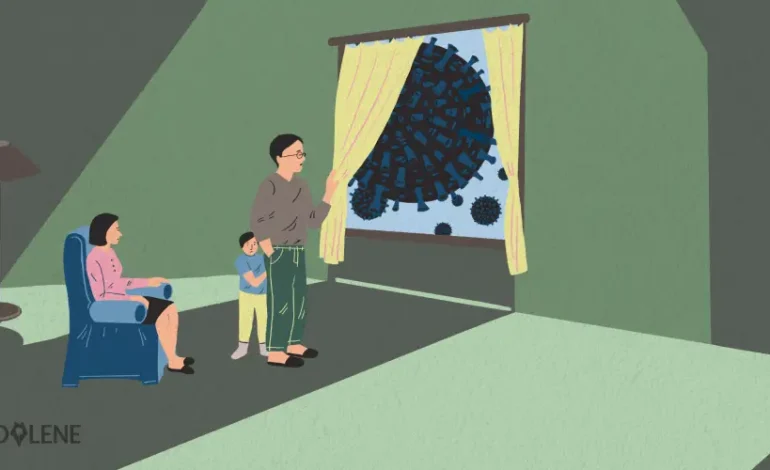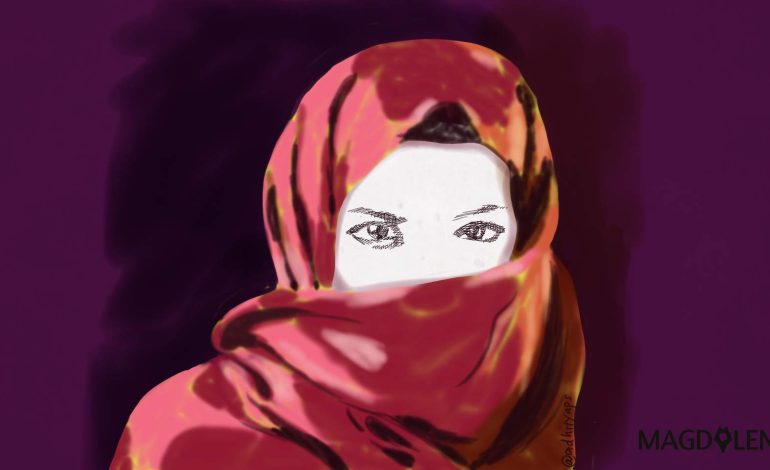Pandemic Shows How the Future is Not for Everyone

As we are marching toward the unknown, the governmental bodies all around the world have been taking and implementing countermeasures to fight the COVID-19 pandemic. Nonetheless, many of us are still facing uncertainty that lurks under our feet.
Many of us are elderly. A lot of us are immunocompromised. Many of us do not have access to health insurance plan. A lot of us do not have access to fundamental necessities such as housing and water security. Many of us do not have the privilege of working from home. A lot of us are being detained and incarcerated. Many of us live with underlying medical conditions that render us vulnerable to viral infections.
As the pandemic grows, we are going to be at the forefront of the mortality numbers.
How should we preserve an imagination of a hopeful future in the time of a pandemic? I have yet to found an answer. The entire system is collapsing, and the apocalypse has already arrived. More and more people are getting the viral infection. There are not enough hospital beds, ventilators, and testing kits for all of us at once. Doctors and nurses keep falling. At the same time, members of People’s Representative Council and their families are getting access to test themselves for coronavirus. The apocalypse is here, and it claims people’s lives not by flood and fire, but rather by global pestilence and economic crisis.
The pandemic, nevertheless, demonstrates that the apocalypse is not for everybody. We have been watching people drowned themselves in panic, indeed. We have been seeing people hoarded hand soap and hand sanitizers, and leave nothing for others to survive. We also have observed that some people shut their gates and hide behind the closed doors. Yet, at the same time, a group of people deliberately decided to partying and roaming through beaches. In other parts of the world (my home included), some people ignored the message to flattening the curve by going to their worship houses; holding beliefs that the Almighty God would protect them from viral infections. For some others, what they do is reproduce and perpetuate racism and sinophobia, and they perhaps do so without even thinking about the racial consequences behind the politics of naming.
Also read: Life and Death in the Time of Corona
Drawing on the COVID-19 pandemic and global responses toward it, I began to think that we are at the loss of our future. I began to think that hope has started to lose its meanings. Despair, on the contrary, has already arrived upon us. It has been crawling to our homes. It has assumed the most material incarnation: viral infections which shall attack our corporeal bodies.
The rights to futurity is never inclusive. For many of us, our very ability to imagine a future that is not uncertain and precarious shall be forever colonized and structured by the power structure outside us. This is certainly the case with the current COVID-19 pandemic, in which people who occupy the margin points in our society are being left to die in the making of the future. A lot of people shall survive, indeed, as governments and experts often assert. Nevertheless, I am not writing this with the majority of people in mind. I am writing this in despair by thinking about my immunocompromised body and other bodies that are susceptible to the novel coronavirus infection.
As much as I would like to assert my temporal agency into the future (e.g., through hopes, aspirations, or plans), I realized that such intention would be futile. The future has already ended for me, and perhaps for many others who are trapped in precarious living situation. At this point of my life, I am not even sure that I can survive to see the day when this pandemic is over. My immunocompromised body reminds me again and again that I have such little privilege in imagining a certain future.
Nevertheless, it is not about me. At the very least, it is not only about me. The loss of the future is about all people who are getting more and more susceptible as the pandemic unfolds: the immunocompromised, the elderly, the workers in retail houses and gig economy, the prisoners, the medical workers at the forefront of the battle against the coronavirus, and so many others.
Also read: Indonesian Students Abroad Vulnerable and Limited amid Pandemic Isolation
A radical reorientation toward imagining a certain future, therefore, requires radical measures at present time. Countermeasures against the potential loss of the future need to be conducted collectively. The COVID-19 pandemic is clearly a global issue and, thus, we need global alliance to address it. This is not the time to preserve xenophobic measures; none of us will stay safe and healthy when there are some of us who suffer under the pandemic. This is not the time for state apparatuses to be ignorant. We need massive tests. We need hospital beds and ventilators. We need housing and water security. We need access to our medications. We need the state to be present. And we need it now.
This is not the time to assert ecofascist claims such as “human beings are the virus” while the actual virus for our earth is capital accumulation that renders the earth to be inhabitable. This is not the time for celebrities to collectively sing “Imagine,” while they could do much more with their wealth. This is not the time to go outside, partying, and ignoring others who are most risk of getting clinical progression. This is not the time to hoard things and leave nothing for others to get.
For the rest of us, this is not the time to accept fatalist ideation of “If I die, I die.” Rather, this is the time to put our labor and care in our work to preserve our future. In so doing, we should keep working and struggling in order to resist against the loss of the future. It is not a hopeful struggle, indeed. This is a struggle structured by despair, obviously. Yet, histories have shown that, for some of us, maintaining hope is a luxury. We have no choice but to fight against the loss of the future.





















